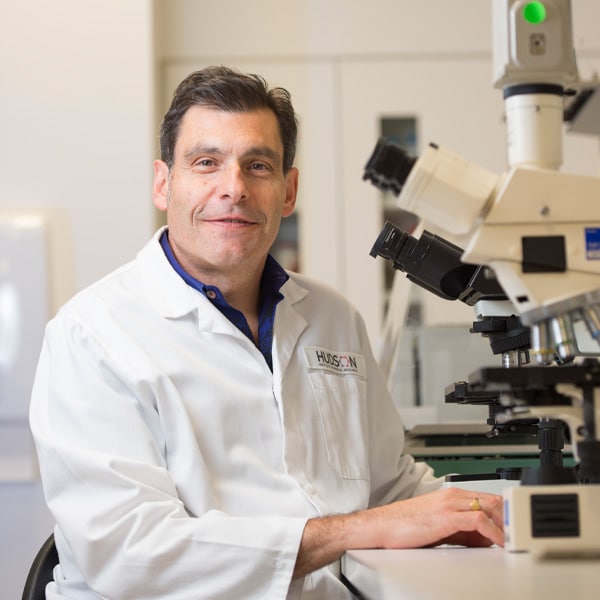H. pylori – short for Helicobacter pylori – colonises the stomach and is known to be linked to the development of stomach cancer. It is estimated that over half of the world’s population is infected with H. pylori, making it one of the most common bacterial infections.

While there is a great deal still to understand about the link between the bacterium H.pylori and the development of stomach cancer, Hudson Institute is at the forefront of research into studying this link and how it may be possible to prevent the infection.
H. pylori and stomach cancer
Research from the group of Professor Richard Ferrero, Head of Hudson Institute’s Gastrointestinal Infection and Inflammation Research Group, has looked at the activity of cytokines, which are small signalling proteins that are crucial in regulating a range of functions in the body.
“We showed that a particular cytokine (IL-18), which was previously thought to promote inflammation in H. pylori infection, seems instead to play a protective role in reducing tissue damage and maintaining homeostasis,” Prof Ferrero said. The research was published in the journal Nature Communications.
Preventing and treating H.pylori
This finding could have significant impact on treatments and prevention for diseases of the stomach lining such as gastritis, but also for stomach cancer which is known to be linked to H. pylori infection.
“In a pre-clinical model, our team found that the conversion of IL-18 into its active form is important in reducing tissue damage.” said Prof Ferrero
“We now need to determine whether it is also important in preventing the severe effects of H. pylori infection in humans.”
Prof Ferrero’s group is also aiming to develop a vaccine against H. pylori infection, which would have a huge impact on the incidence of stomach cancer worldwide.







